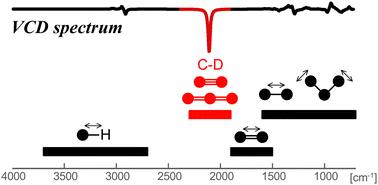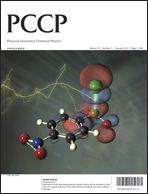Vibrational circular dichroism spectroscopy in the C–D, XY, and XYZ stretching region
Abstract
Vibrational circular dichroism (VCD) spectroscopy is a powerful technique for structural analysis of chiral molecules, but information available from VCD spectra of large molecular systems can be limited by severe overlap of vibrational bands. While common chiral molecules do not absorb in the 1900–2400 cm−1 region, observation of VCD signals in this spectrally-isolated region is possible for molecules containing C–D, XY, and X
Y
Z chromophores. Thus, a strategic introduction of these chromophores to a target molecule may produce VCD signals informative for molecular structures. VCD spectroscopy in the 1900–2400 cm−1 region is a rather unexplored research field and its basic properties remain to be investigated. This perspective article discusses insight obtained so far on the usefulness and physicochemical aspects of VCD spectroscopy in this region with briefly summarizing previous experimental VCD studies including classic examples as well as our recent results. We show that anharmonic effects such as overtones and combination bands often complicate VCD patterns. On the other hand, some molecules exhibit characteristic VCD signals that can be well interpreted by harmonic DFT spectral calculations for structural analysis. This article also discusses several examples of the use of this region for studying solute–solvent interactions and for VCD signal augmentation.


 求助内容:
求助内容: 应助结果提醒方式:
应助结果提醒方式:


